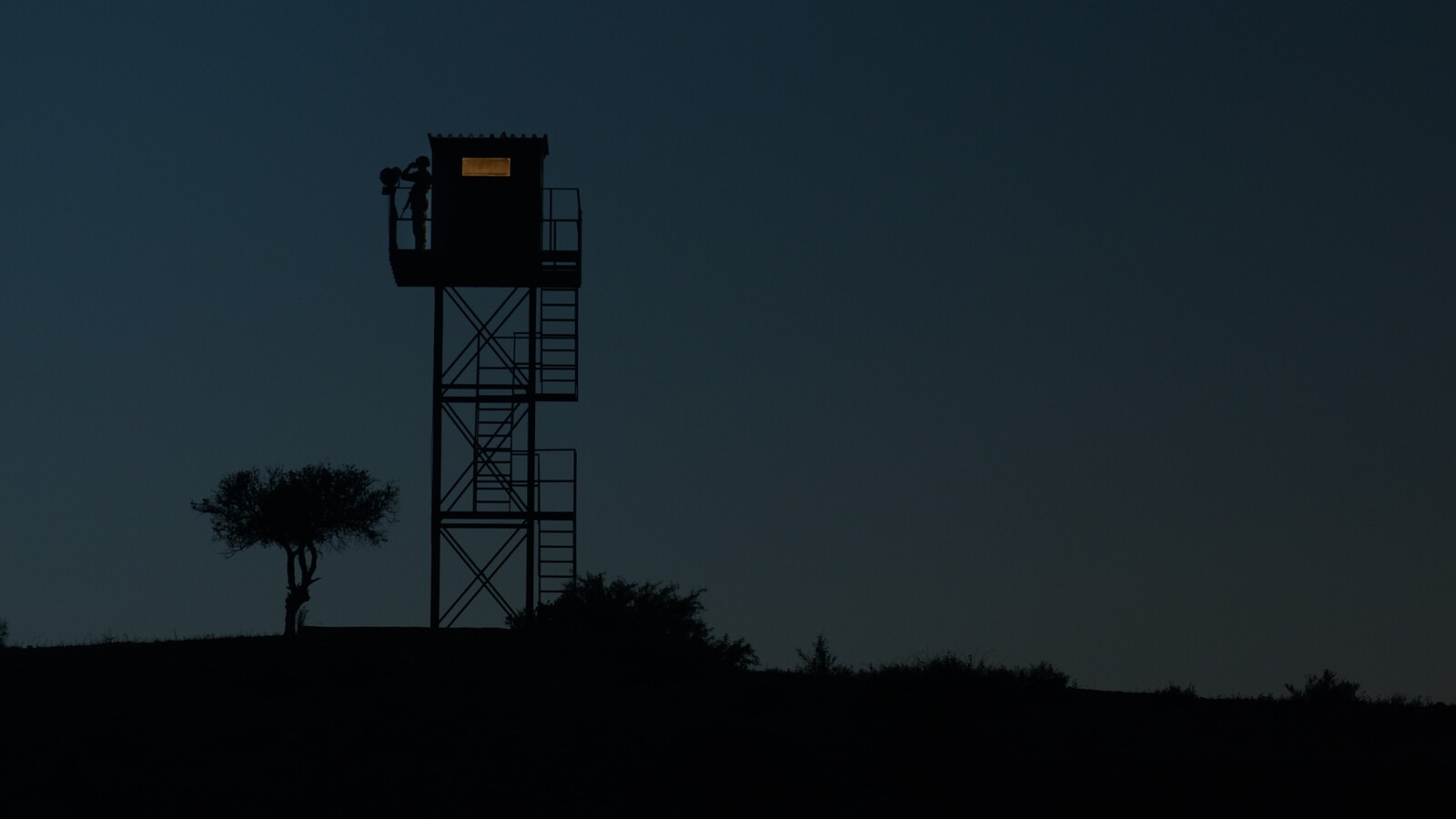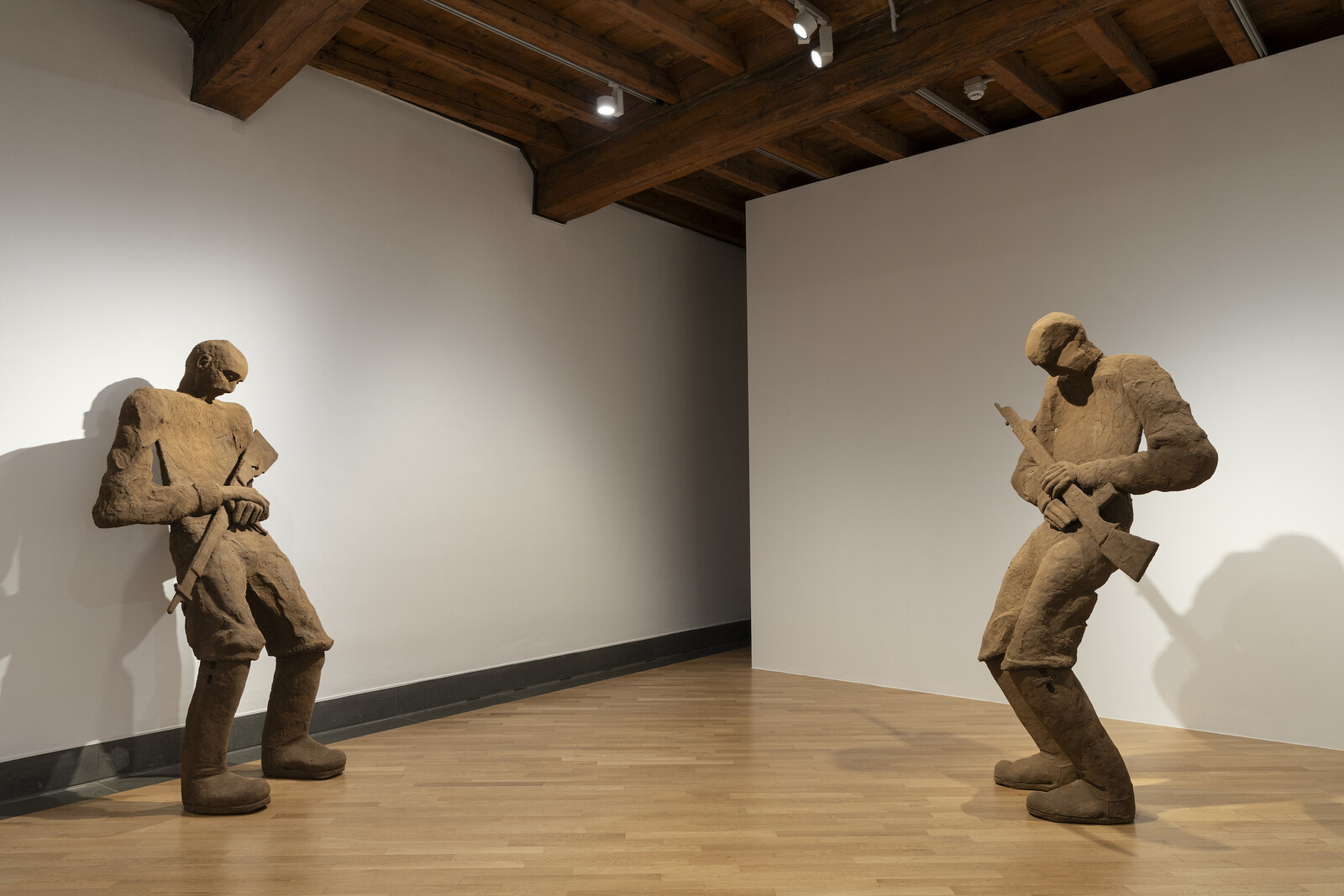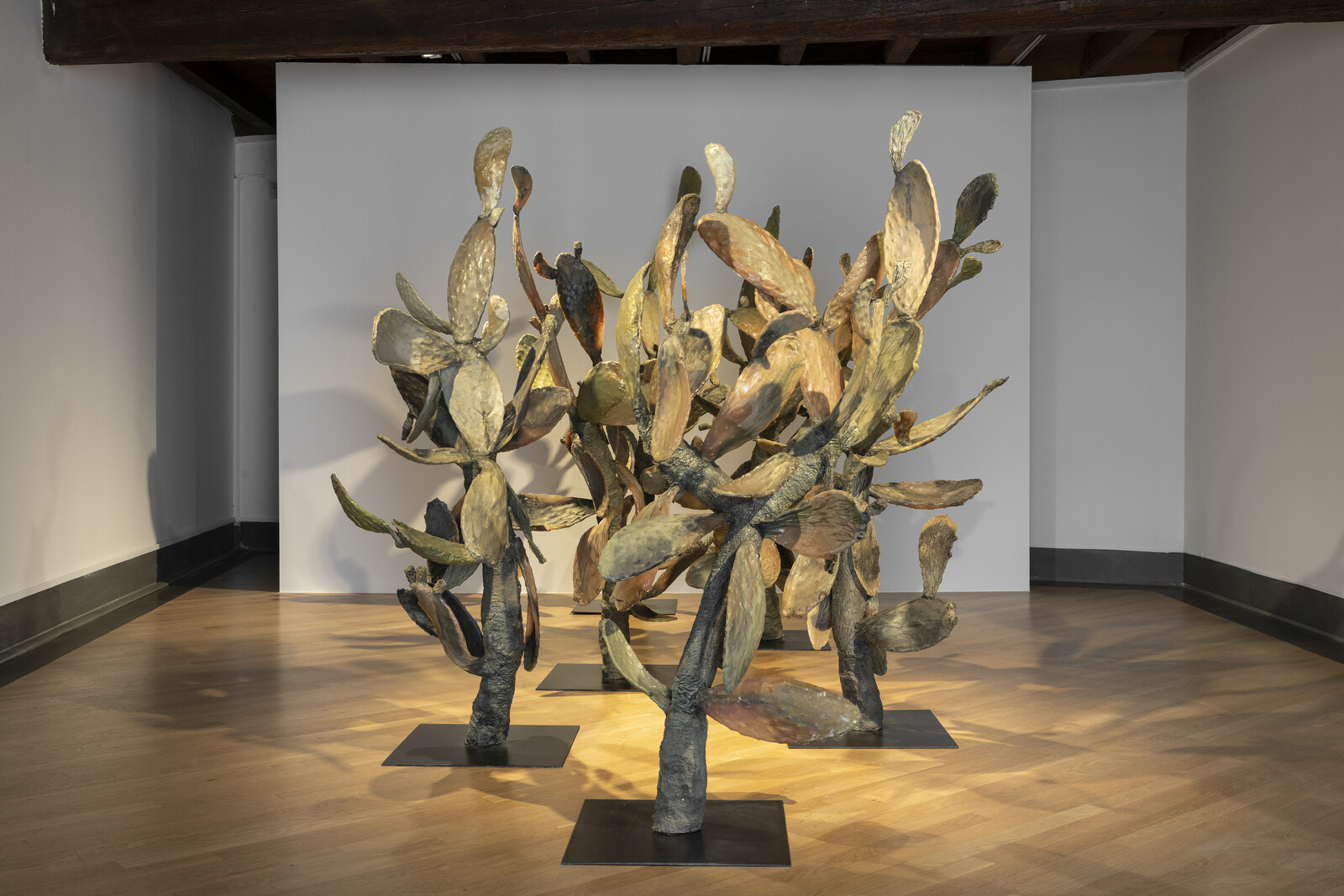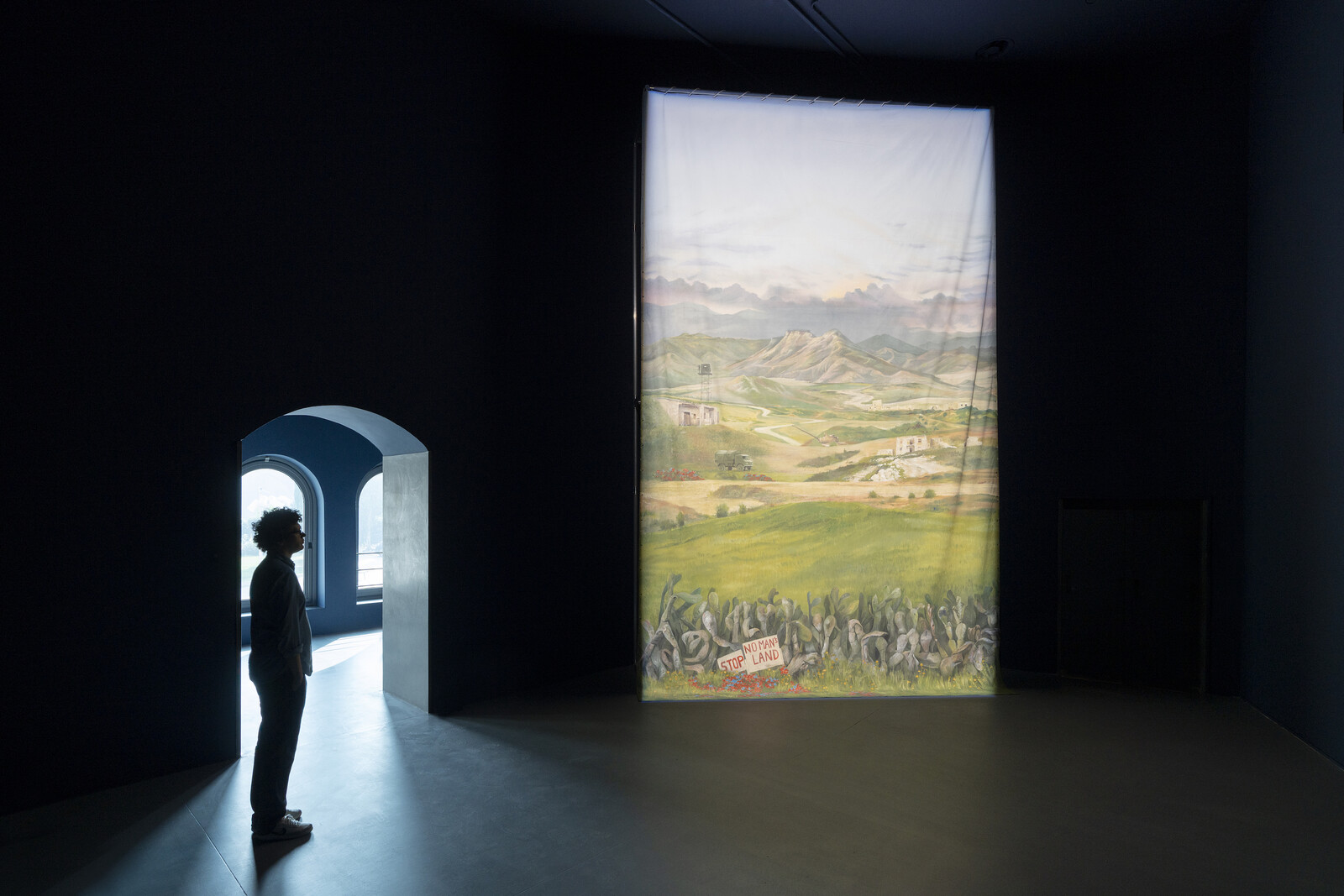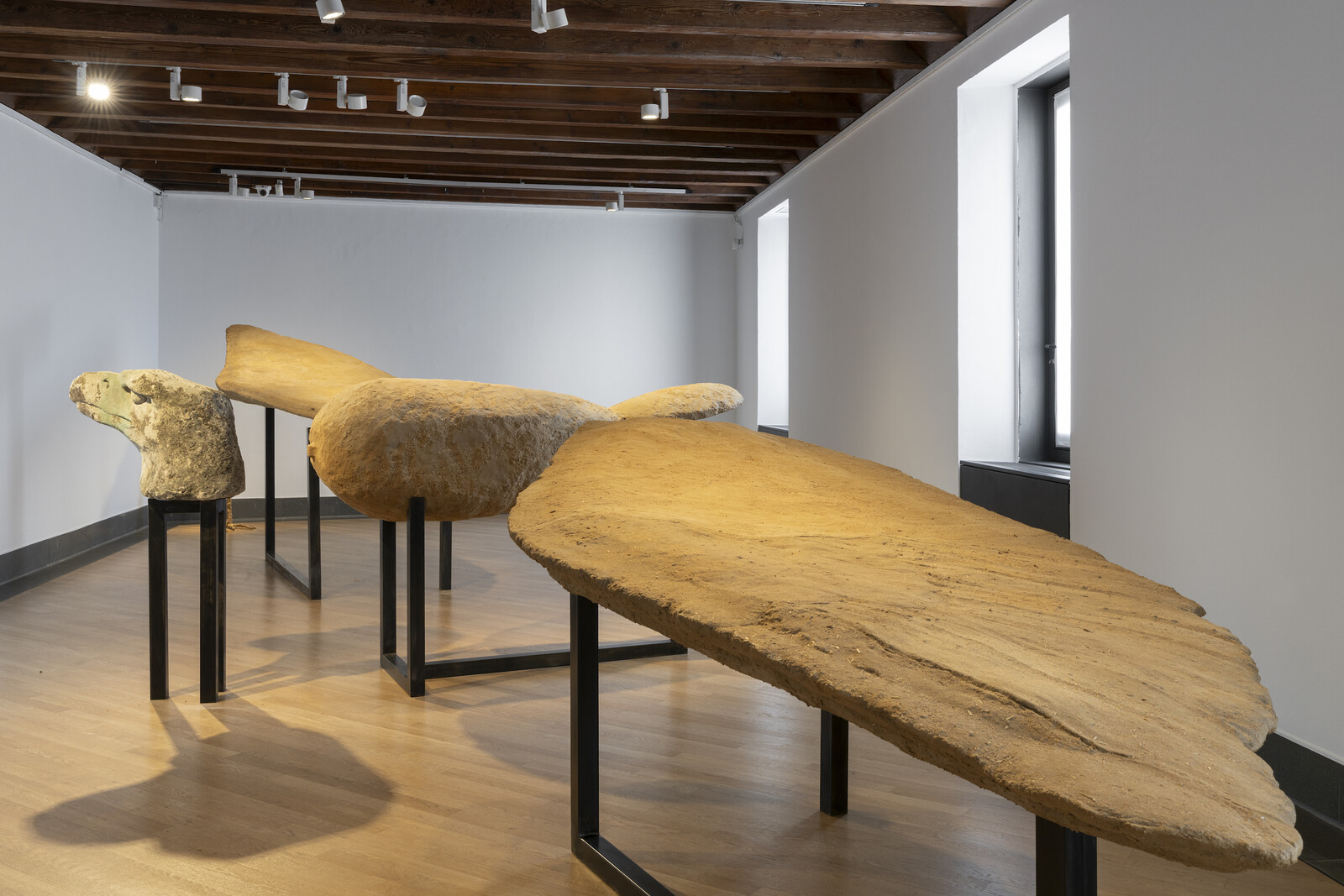October 8, 2023–January 14, 2024
Ali Cherri’s The Watchman [Nöbetçi] (all works 2023) follows a young Turkish Cypriot officer stationed at a watchtower in Akincilar, a district encircled by the meandering border drawn across Cyprus after the Turkish invasion of 1974.1 Adjacent to the closely patrolled United Nations Buffer Zone, it is a desolate, transitory place where nothing really happens. On the horizon are the crumbling ruins of a village abandoned by Greek Cypriots. When the loudspeaker announces the end of his shift, Sergeant Bulut doesn’t move, his bloodshot eyes staring into the camera as if hypnotized by the drone of cicadas. The soldier’s routine is occasionally interrupted by a robin crashing into the dusty glass, leaving a splotch of blood and feathers; Bulut dutifully retrieves each body and records the collateral casualty with another tick on the wall.
This film is not about a particular place: Cyprus, a geopolitically strategic territory that has passed from empire to empire since antiquity, here stands for the postcolonial state of the world and, with much of its population exiled within their own country, the existential condition of so many in contemporary society. On the southern coast lies the British Overseas Territory, a legacy of colonial rule. Turkish forces landed in the wake of ethnic polarization—after a botched Greek junta-sponsored coup d’état by the Cypriot National Guard—citing the three-hundred-year reign of the Ottoman Empire in its claim for Cyprus as a rightful homeland. Yet, as so often in these territorial disputes, at stake is the control of natural resources, in this case oil extraction rights.
Opposite the projection screen hangs a portrayal of the film’s pastoral scene painted on fabric, No Man’s Land (Theater Backdrop)—an idyll spoiled by signs in the foreground, nestled in a foreboding barrier of cacti, reading “Stop” and “No Man’s Land.” Eventually the eye catches sight of a defunct tank and a military truck camouflaged by the hills. The show continues in a series of small spaces with single installations related to elements of the film. Casting shadows on the walls of a dimly lit room, The Prickly Pear Garden is a cluster of dusty resin sculptures of the plant typically used for fencing off property. Depicted in a state of decay reflecting its gradual destruction by insect infestation and climate change, the spiny succulent evokes the contradictory yet correlated qualities of nature and artifice, vulnerability and menace.
The Dismembered Bird, a monumental sculpture of an eagle with a sixteenth-century Prussian artifact for a head, dominates another empty room. An emblem of strength, power, and freedom, this raptor illustrates how cultural forms have been borrowed, copied, combined, and rebranded from one empire to the next to promote ideologies of belonging. Yet the body and wings, tellingly detached from the weathered stone head, are molded from a brittle clay the color of the traditional mud-brick houses left behind by Cypriots who fled to the north or south side of the border, according to their ethnicity, conveying fragility and temporality. At the end of the corridor, Wake up Soldiers, Open Your Eyes constitutes two colossal clay warriors hugging guns to their chests in an otherwise vacant room. Slumped in resignation with knees bent as if on the verge of genuflection, they are more pathetic than heroic. Cherri’s effigies allude to archetypal myths from Gilgamesh to Genesis that recount the creation of human beings out of soil, ending in their destruction as punishment for lack of respect for divine laws. In the context of the climate emergency, these tales strike a resounding chord.
After dark, the Turkish Cypriot soldier in The Watchman sees his own image reflected by the glass, the tower a lone beacon on the horizon. Tasked with guarding the frontier against infiltration, he starts to see things that are not there, and even his own comrades question his sanity. One day an elderly village woman invites him for coffee and recalls how she named her son after a war “martyr,” hoping he would not end up in the army too. The Greek word μάρτυρας (martyr) means witness as well as someone sacrificed for their beliefs: to survive can require blinding oneself to the obvious.
Indeed, Cherri proposes that the victims of conflict are not only those subjected to violence but the soldiers obligated to kill or harm others in the service of a nation. Isolation facilitates control, yet as The Watchman portrays, it also engenders paranoia, boredom, and despair—the logical end point of which is extremism. At the film’s conclusion, Sergeant Bulut stops a battalion of Turkish soldiers advancing to the tower with eyes closed against the dark, as if they’ve been zombified. The leader implores him to join them. “And what would happen to me if I followed you? Would I ever come back?” Bulut’s questions go unanswered.
The Watchman is produced by Fondazione In Between Art Film, who also organized the exhibition.
